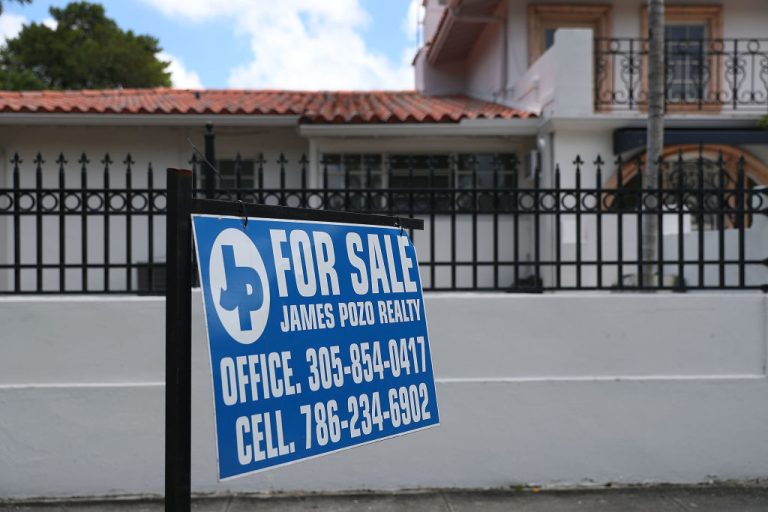Foreign buyers from China bought up more U.S. real estate than buyers from any other country so far in 2022, new data shows.
Although Chinese foreign buyers amounted to only 6 percent of all foreign purchases, a total of $6.1 billion — the highest among any country — has made landfall in the U.S. market.
Canadians were the largest demographic of foreign purchasers at 11 percent, although their combined investments were less, amounting to only $5.5 billion.
The statistics were revealed in a report released by the National Association of Realtors (NAR) titled International Transactions in U.S. Residential Real Estate.
MORE ON REAL ESTATE AND CHINA’S HAND
- US Authorities Bust Major Drug Operation in Oregon Linked to Chinese Triad
- Mexican Drug Cartels Laundering Money Through China’s Triads After Championing US Fentanyl Push
- Chinese National Claiming $40,000 Annual Income Buys $32 Million in Vancouver Real Estate
- Is the US on the Cusp of a Housing Crash?
The document clarifies that “China” combines all buyers from mainland China, Hong Kong, and Taiwan within the demographic.
Success
You are now signed up for our newsletter
Success
Check your email to complete sign up
Statistics were generated from an online survey sent to 150,000 licensed realtors and “and to members of local associations which also conducted surveys of foreign buyers” between April and May.
All in all, foreign buyers amounted to 2.6 percent of the U.S. housing market, a $2.3 trillion industry, with $59 billion transacted in all.
The total number of purchases between April of 2021 and May of 2022 was 98,600, and 57 percent of all foreign buyers resided in the United States either as “recent immigrants” or Type B non-immigrant visa holders.
The top destinations targeted among all foreign buyers were Florida, California, Texas, and Arizona.
Florida alone amounted to 24 percent, and New York 4 percent.
The average purchase price paid by foreign buyers of $366,100 slightly exceeded the national average of $355,700.
44 percent of foreign buyers used cash to transact, and 44 percent were said to be purchasing either a vacation or a rental property.
The total rate of purchases of rental and vacation properties among all home buyers is only 17 percent.
The reason for the large amount of investment may be simple, the report states: the price of housing in the U.S. is simply very cheap compared to the rest of the world.
Data showed that the average price per square meter of a U.S. home in venues such as Miami is $3,170. This figure amounts to a total steal compared to Hong Kong, the most expensive in the world, at $28,570 per square meter.
Taiwan is $10,373, while Beijing is booking $11,829 per square meter.
The most expensive locale in the United States is New York, an outlier at $17,191 per square foot, compared to second place San Francisco at $8,250 per square meter.
NAR Chief Economist Lawrence Yun told the New York Post in a July 20 article that the outlook for the U.S. housing market amid tightening of the Federal Reserve’s monetary policy not seen in more than two decades is glum.
“Due to rising interest rates, overall home sales will decline in the US this year,” he stated.
The point, he said, is, “Foreign buyers, however, are likely to step up purchases, as those making all-cash offers will be immune from changes in interest rates.”
The reality of this supposition is serious. In late July, Chief Economist for Canada’s largest bank, Royal Bank of Canada, Robert Hogue, told clients in a missive that the Canadian housing sector was bracing for an imminent correction of “historic” proportions.
In July, the Bank of Canada raised rates 100 basis points, the largest hike since 1998, to 2.5 percent.
Hogue anticipated that tightening was likely to send new buyers to the sidelines.
In a July 25 article on the topic, Vision Times reported using historical data from various Canadian mortgage websites that the cost of a 5-year fixed rate mortgage was already averaging 5.89 percent before the July hike.
In 2020, when the Bank of Canada’s rates sat at near-zero, the same mortgage cost only 2.99 percent.
The difference in cost on a $500,000 mortgage was not only almost $800 per month extra, but an additional nearly $70,000 in interest over the course of the term and more than $220,000 over the entire 30-year period.
The concentration of Chinese investment in Florida is specifically notable.
Florida Governor Ron DeSantis told Fox News in a July 23 interview that he had signed legislation to challenge “undue influence from rogue states” such as the Chinese Communist Party.
The comments came on the back of a question by host Laura Ingraham that asked, “There’s concern growing around the United States that China is buying up an enormous amount of land, both residential and farmland. And I know, there are plenty of pieces written about the Chinese purchases of residential real estate, driving the prices up here in Florida. Do you have any concerns about that?”
“I think the problem is these companies have ties to the CCP, and it’s not always apparent on the face of whatever a company is doing — but I think it’s a huge problem,” DeSantis stated.
DeSantis added, “You know, all the things that the elites told us to do with China over the years, most favored nation status, put them in the WTO. ‘Oh, they will be just like us.’ ‘They’ll be more democratic.’”
“It’s been the opposite. It’s empowered them. But then they’ve become more autocratic. And they’re now flexing their muscle more than they ever have in our lifetime.”
The Governor’s comments came on the back of a 2019 report released by the U.S. Department of Agriculture revealing that Chinese entities had purchased more than 192,000 acres of U.S. farmland at a total investiture of more than $1.9 billion.















